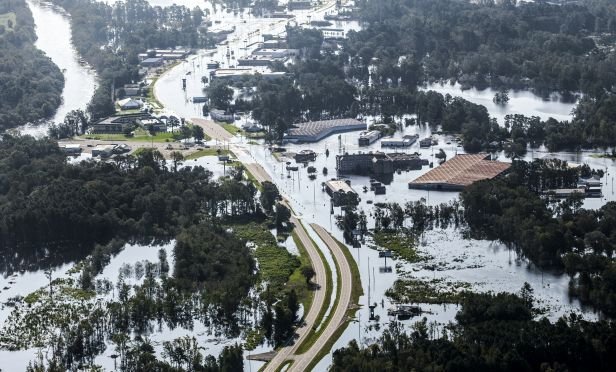 A road partially covered by floodwater is seen in this aerial photograph taken above Kinston, North Carolina, on Friday, Sept. 21, 2018. Record floods covered much of eastern North Carolina in the wake of Hurricane Florence. (Photo: Alex Wroblewski/Bloomberg)
A road partially covered by floodwater is seen in this aerial photograph taken above Kinston, North Carolina, on Friday, Sept. 21, 2018. Record floods covered much of eastern North Carolina in the wake of Hurricane Florence. (Photo: Alex Wroblewski/Bloomberg)
Once again, just in the nick of time, on Friday, December 21, 2018, Congress reauthorized the National Flood Insurance Program (NFIP) until May 31, 2019.
Recommended For You
Want to continue reading?
Become a Free PropertyCasualty360 Digital Reader
Your access to unlimited PropertyCasualty360 content isn’t changing.
Once you are an ALM digital member, you’ll receive:
- Breaking insurance news and analysis, on-site and via our newsletters and custom alerts
- Weekly Insurance Speak podcast featuring exclusive interviews with industry leaders
- Educational webcasts, white papers, and ebooks from industry thought leaders
- Critical converage of the employee benefits and financial advisory markets on our other ALM sites, BenefitsPRO and ThinkAdvisor
Already have an account? Sign In Now
© Touchpoint Markets, All Rights Reserved. Request academic re-use from www.copyright.com. All other uses, submit a request to [email protected]. For more inforrmation visit Asset & Logo Licensing.







